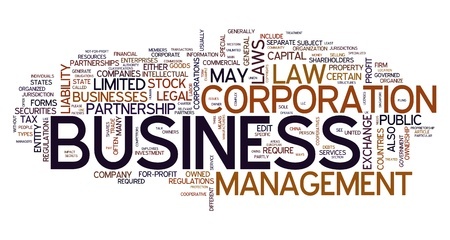 Are you looking for information about how to sell on Amazon? This is probably one of the most important articles you will find.
Are you looking for information about how to sell on Amazon? This is probably one of the most important articles you will find.
No, I'm not going to share with you the nuts and bolts about how to find and source your products, then ship them to Amazon, and finally, get them sold.
But what I am going to share with you today is 10 things that you really need to be aware of, from a purely legal standpoint, about how to sell on Amazon.
As a lawyer and an Amazon FBA seller myself, I've discovered several of the legal traps that many of the online training programs don't touch on when they are teaching you how to build a dream business. And when I say “don't touch on”, you should be aware that some of the people “in the know” about how to sell on Amazon will actually give downright bad advice to would be Amazon sellers.
My favorite “advice” took place at a mastermind event I attended earlier this year when a prominent Amazon seller told a room full of people to “not to worry about trademarking your brand, you can do that later…”
At that point, I had enough, and I know that I needed to start getting some solid legal information out there to people who are thinking about selling on Amazon. (FYI, this information is primarily targeted at private label sellers, although those of you that do retail arbitrage would be smart to read through this also).
10 Things you Need to Know (Legally Speaking) about How to Sell on Amazon
- Make sure the product you pick is not patented or otherwise trademark protected. Many people believe you can only trademark a name. This is not correct. You can also trademark certain design elements of a product. You will want to do a trademark and patent search of potential products before you place your first inventory order.
- Make sure to choose the proper legal entity. It is true that you don't necessarily need to file your corporate paperwork immediately, but doing so will help make you seem more legitimate in the eyes of your suppliers. Make sure to sign up for a google apps account and get a legitimate email address that coincides with your corporate name. (You can start as a holding company and use a separate trade name once you settle on a product. Make the name of the holding company something generic, just make sure it is not in use by someone else in the state you plan to incorporate.)
- In 99% of the cases, you should incorporate in the state that you live in. You can't avoid paying state income tax just by incorporating in Florida (where there is no state income tax) if you live in North Carolina (where there is a state income tax). Where you personally live will dictate where you pay state income taxes.
- After you settle on a product and are confident that you are not violating anyone's intellectual property, pick a name for the brand that will sell the product. The easiest way to do this is to choose a name that is generic. If you are selling water bottles, you can pick a name such as “Cool Water Bottles” and use that as the brand selling the products. Because the name is generic, it is not capable of being trademarked, so you don't need to concern yourself with registering a trademark for your brand.
- If you elect to pick a market and sell multiple products in that market, you may want to pick a unique name. In that case, you will want to read this article we wrote about how to pick a proper brand name.
- Assuming you have picked a good name that you believe has a good likelihood of getting registered as a trademark, you will want to make sure nobody else has already picked that name. Here is another great article on how to do a proper trademark search.
- At this point, you've picked a good product, you've made sure you aren't infringing on anyone else's IP, you've picked a good name, and you've made sure nobody else is using the name you picked. What next? You need to register your name with the US Patent and Trademark Office (USPTO). If you don't, you still have common law rights to your trademark, but to make sure you are fully protected, registering your name is the best bet, especially with new Amazon sellers entering the market almost daily. If someone dishonest likes your name and product, they can knock it off, file for registration, and if you aren't paying attention, steal your name from you. Wouldn't that suck?
- For those of you that are selling on Amazon.com, but you live outside of the United States, it is even more important that you file your corporate paperwork sooner rather than later. Otherwise, you will need to file for a tax id number in the states and file a personal tax return in the US, disclosing all your income from any source, even foreign sources. We recommend that you check out this article on which is the best corporate entity for people selling on Amazon who live abroad.
- Get all your contracts in order. One item that is easy to gloss over is the language in the contracts that you use with both outside vendors/suppliers, as well as your employees and independent contractors. To the extent possible, you want to negotiate terms and conditions in all of your contracts, especially in your dealings with suppliers from outside the United States. This could include discounts or penalties for late shipments, payment terms warranties as to the quality of the goods, etc. If it's not in writing, it never happened.
- Make sure to conduct a professional inspection of your products BEFORE they are shipped to Amazon, and BEFORE you make your final payments. This is an absolute must, especially on your first shipment. If the goods aren't inspected before they leave the supplier, then it can become costly and expensive to ship items back, or deal with angry customers after the goods get to Amazon.
In writing this list, I realized that there are at least ten more items that I could discuss at length about how to sell on Amazon from a purely legal standpoint, in addition to the items listed above. But this is a good first start.
As with any business, we recommend that you start small, and build your systems and relationships with your suppliers as you go. If you need any assistance, or would like to schedule a strategy session with an attorney, click here and we will be in touch. Also, don't forget to sign up for our legal audit checklist to make sure you have all your legal ducks in a row as you build your business.




Great article James. Many these tasks and procedures are overlooked, and/or ignored by the advice vendors.